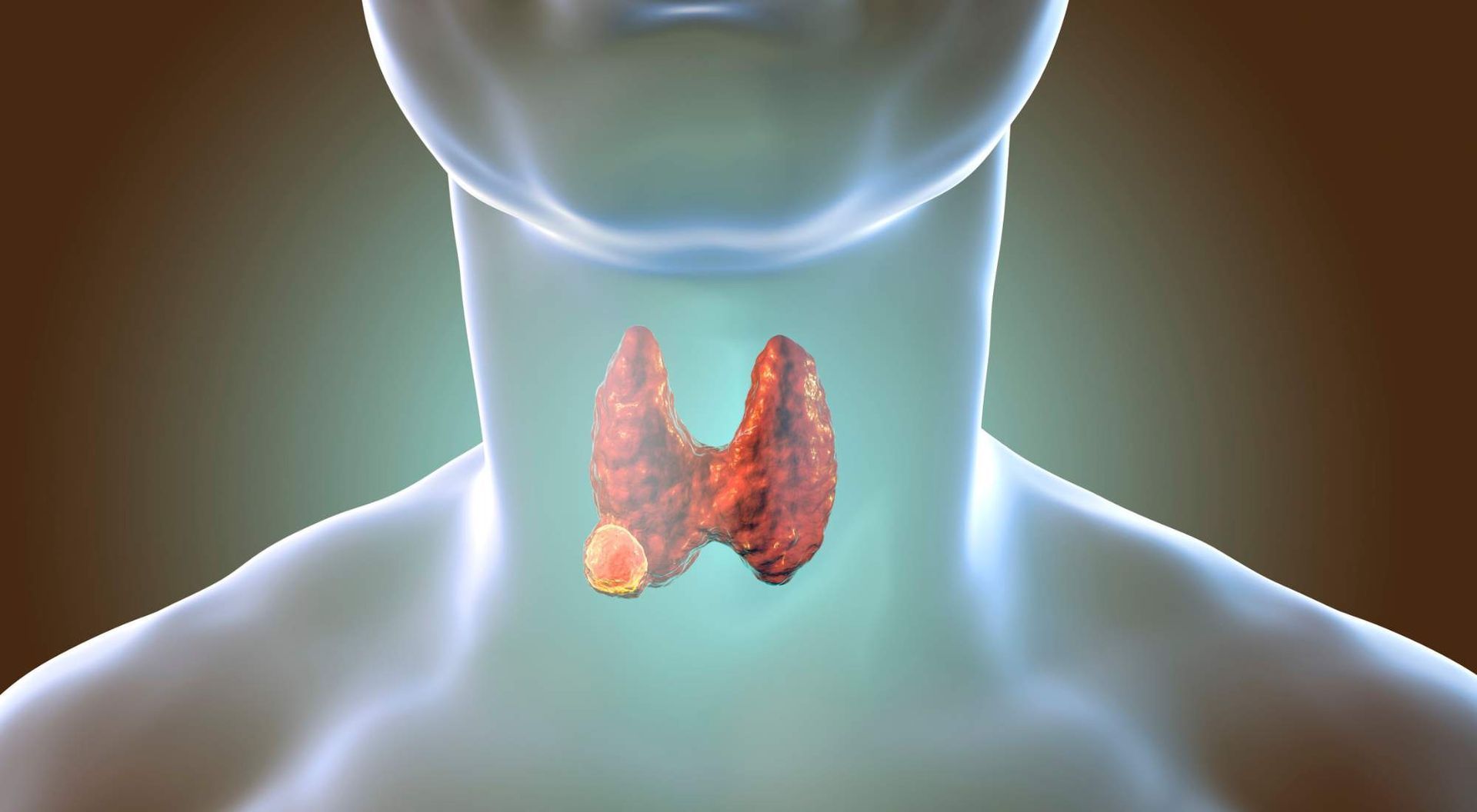How To Naturally Improve Your Thyroid Function
"The content below is not intended to be a substitute for professional medical advice, diagnosis, or treatment. Always seek the advice of your physician or other qualified health provider with any questions you may have regarding a medical condition."
Many people who have thyroid dysfunction are not even aware — they may just not feel well.
If you have thyroid disease, it can affect your overall quality of life. Generally speaking and not surprisingly — the more significant the thyroid dysfunction, whether it is hyperthyroidism or hypothyroidism, the more severe the symptoms may be.
Medications can help improve thyroid function, but there are many natural approaches and recommendations which may be just as helpful. In fact, they may even reduce your need for medications or pharmaceutical interventions.
Read further for natural recommendations to improve your thyroid function.
Table of Contents
What Optimal Thyroid Function Looks Like
Your thyroid gland is a small but very important gland that is part of the endocrine system. It is shaped like a butterfly and located in the front of your neck. You may recall your medical provider assessing your thyroid gland by placing their hand on your neck and asking you to swallow.
The thyroid makes and secretes hormones that support many life-sustaining functions — including those regulating heart rate and rhythm, respiratory function, and growth and metabolism. Without an optimally functioning thyroid gland, our bodies may be suffering from multiple symptoms.
Some of the vital hormones the thyroid makes and their functions include the following:
- Calcitonin
- Helps to regulate the amount of calcium in your blood
- Thyroxine (T4)
- The primary hormone produced by the thyroid gland
- T4 converts to T3 after being released into your bloodstream.
- Triiodothyronine (T3)
- Affects your metabolism
- Thyroid-stimulating hormone (TSH)
- TSH is produced by another endocrine gland, the pituitary gland, but is essential as it stimulates the thyroid gland to secrete the hormones listed above.
When your thyroid gland is not functioning properly, your provider may diagnose you with two conditions based on your symptoms and bloodwork levels — hypo- or hyperthyroidism.
Millions of Americans are affected by impaired thyroid function — with more than 12% of the US population expected to develop thyroid symptoms within their lifespan.
Hyperthyroidism is when your thyroid gland makes too much thyroid hormone. Symptoms that you may be experiencing from an overactive thyroid gland include:
- Neck swelling or enlargement
- Irritability, restlessness, mood swings
- Unexpected weight loss
- Brittle hair or hair loss
- Increased heart rate or palpitations
- Eye bulging
- Excessive perspiration
Opposite of an overactive thyroid gland is an underactive gland known as hypothyroidism. The following are symptoms that may be evident from an underactive thyroid gland:
- Unexpected weight gain
- Abnormal fatigue
- Difficulty concentrating or memory impairments
- Intolerant to cold temperatures
- Skin numbness or tingling
- Depression or anxiety
How To Treat Thyroid Function Without Medication
While many people choose to treat thyroid dysfunction solely and effectively by medicinal approaches, there are benefits to treating thyroid function naturally and with less potential for adverse effects.
HealthierU aims to treat thyroid concerns holistically, but speaking with your healthcare provider is vital to understand if you can make diet and lifestyle changes for an effective thyroid treatment. Medications may be required in addition to diet and lifestyle changes — as some conditions may result in serious consequences if not promptly corrected.
What Naturally Improves Thyroid Function?
Optimal thyroid support can be achieved naturally with diet and nutrition, but it is important to understand the difference between the two.
HealthierU can help provide valuable insights into the connection between diet and nutrition. Diet refers to our food and drink choices, while nutrition is about how our body processes and utilizes these choices for our health.
Our mission is to help you understand how your body uses the foods you consume and to help you make informed choices to support your health and lifestyle goals.
How To Improve Thyroid Function With Diet
A striking number of Americans, especially the aging population, struggle with nutritional deficiencies that may affect their overall health.
A shift in daily dietary choices can lead to a longer and healthier life.
Being knowledgeable about your food choices is essential for living and aging well.
Foods To Include in a Balanced Diet
There is no specific diet for thyroid support, but some foods certainly promote healthy body functioning and contribute to a balanced and wholesome diet.
Consider adding the following foods to your next grocery list:
- Whole, unprocessed foods
- Fresh fruits
- Fresh vegetables
- Whole grains
- Legumes
- Lean proteins
- Organ meats
Foods To Limit or Avoid
Some foods should be limited or avoided to sustain a healthy diet for everyone, not just those with thyroid concerns, include:
- Excessive sugar
- Alcohol
- Processed foods
- Seed oils
However, those with thyroid concerns may be especially sensitive to the following foods:
- Gluten
- Cruciferous vegetables such as broccoli, brussels sprouts, and cauliflower
- The thyroid requires dietary uptake of iodine for proper functioning, and studies reveal these vegetables tend to impair the absorption of iodine by the thyroid gland.
- Soy products
Pay Attention to Gut Health
Gut health has a great impact on many of our daily body functions including thyroid health.
Gut and thyroid function often go hand-in-hand with manifesting symptoms of constipation, acid reflux, and significant fatigue. If your gut is malfunctioning, it can lead to decreased absorption of necessary nutrients for thyroid health.
Improving gut health can lead to decreased
autoimmunity response and better thyroid function, and the improved gut and thyroid functioning can often be improved with natural and holistic approaches.
How To Improve Thyroid Function With Supplements
Good nutrition happens when we provide all the nutrients we need in adequate amounts and in a form the body can absorb and utilize.
Much of what we need to achieve good nutrition is acquired from the food we eat, but increasingly, nutritional supplements are required to keep us healthy.
Our bodies can suffer amid the stresses and circumstances of our lives from causes such as environmental pollutants, excessive food refinement, loss of sleep, exhaustion, emotional strain, dieting, or illness.
You may have questions about adding thyroid-supporting vitamins and minerals to your daily routine. An iodine deficiency may be a cause of your hypothyroidism symptoms. In addition to iodine, essential vitamins and minerals may be helpful, such as:
- Selenium
- Zinc
- Copper
- Iron
- Vitamins A, B, C, and E
With so many supplements to choose from, it can be complicated to know which ones to take and how to take them. Consult
HealthierU today with your questions on how to effectively support your thyroid function.
How To Improve Thyroid Function With Lifestyle Choices
Thyroid challenges are widespread throughout the United States, with a thyroid hormone replacement medication being the 3rd most-prescribed medication.
The good news is that thyroid dysfunction can usually be corrected. Some can be remedied with natural approaches like diet and lifestyle adjustments, while others may require pharmaceutical support or similar measures.
Manage Stress
Stress is a word that seems all too common in today’s society. Not only can chronic stress impair overall health and well-being, but it can affect your thyroid, too.
The impact of stress on the thyroid occurs by slowing your body’s metabolism, potentially leading to weight gain. When thyroid functions slow during periods of stress, the T3 and T4 hormone levels fall.
Your thyroid gland also has a close relationship with your adrenal glands. These glands are located above the kidneys and handle small amounts of stress without difficulty and release cortisol, which supports various bodily functions.
However, too much cortisol can be a detriment by leading to weight gain and impaired metabolism and negatively affecting your mood.
For your overall general
and thyroid health, it is important to identify your personal stressors and initiate boundaries and reduction techniques as possible.
Exercise Regularly
Professionals recommend at least 30 minutes of daily exercise for obvious physical impact, but routine exercise also positively affects mental health, strong bone maintenance, and increased energy levels.
However, there are considerations for those with thyroid dysfunction, as excessive exercise may be a hindrance.
Repeated intense exercise programs may increase inflammation and negatively affect hormone levels. If you are feeling continually fatigued, ill, or find yourself with frequent injuries and pain, you may have to modify your programs.
Hypothyroidism may contribute to muscle weakness, cramping, or poor endurance. If you are noticing an increase in symptoms, a change in exercise patterns or intensity may be necessary with longer recovery times between intervals.
Get Quality Sleep
Getting enough quality sleep on a daily basis can be tough for anyone but especially for those struggling with hypothyroidism. However, aiming for a good night’s sleep can greatly impact your thyroid health, as sleep is the time your body recharges and heals from each day’s activity and stressors.
Obtaining the recommended eight hours of sleep may seem like an unachievable task, but adopting a bedtime routine or sleep hygiene habits may help.
Some tips for falling asleep and getting quality rest each day:
- Create a sleep schedule
- Go to bed and wake up at the same time each day, even on weekends.
- Establish a bedtime routine
- Read, listen to calming music, pray, or meditate.
- Avoid screen time on devices for at least 30 minutes prior to sleep.
- Maintain a relaxing atmosphere in your bedroom
- Keep the room cool, quiet, and able to be darkened.
- Invest in comfortable mattresses, pillows, and bedding.
- Avoid stimulants
- Limit caffeine intake after noon each day.
- Avoid alcohol or nicotine prior to bed.
- Exercise regularly, but avoid intense exercise just before bedtime.
- Keep naps short and avoid napping late in the day.
Enjoy the Sun
Safe, natural sun exposure can do wonders for our health and well-being, as it:
- Improves blood flow throughout our bodies.
- Decreases blood pressure.
- Helps regulate hormones.
- Promotes natural circadian rhythms.
- Improves
natural vitamin D production, which is essential to thyroid function.
Reduce Toxin Exposure
Unfortunately, we have a potential for significant exposure to toxins, pollutants, and heavy metals in our environments — and this exposure can impact thyroid functioning.
To minimize exposure, the following interventions may be helpful:
- Use natural — not chemical-based — cleaning products
- Filter your drinking water
- Wash fruits and vegetables under running water just before eating, cutting, or cooking
- Test your home
- If your home was built before 1978, have an expert test it for lead paint.
- Consider probiotics
- Probiotics may have the potential to prevent or treat heavy metal toxicity in humans.
In order to reduce the amount of toxins making their way into our bodies, it can help to analyze what we ingest and our surroundings and make adjustments as needed.
Stay Educated
Take the time to become and stay educated about your health and thyroid condition.
Be sure to attend your routine provider visits, as this will provide you time to ask questions about your routines, supplements, or medications.
You are the most important advocate for your own health.
Living with thyroid dysfunction can present you with frequent challenges, but managing your symptoms is possible along with the help of your providers supporting you for optimal health.
HealthierU: Combining Customized Diet, Supplementation, and Lifestyle Programs To Achieve Maximum Thyroid Function
Making dietary changes and adding supplements are some of the best ways to return your thyroid to proper working order.
HealthierU begins by conducting a nutrition assessment. Once we confirm that thyroid dysfunction is the cause of symptoms, you’ll receive a personalized program that addresses your specific needs with a holistic approach to care.
Our lifestyle programs make recommendations for diet, exercise, and whole-food supplementation.
Contact us today to schedule a free complimentary consultation designed to help you get back to your best life with natural
hypothyroidism treatment in Brooklyn.
HealthierU
Natural Nutritionist Brooklyn
126 Avenue U
Brooklyn, NY, 11223
(718) 375-4355
Office Hours
- Monday
- Closed
- Tue, Fri
- -
- Wednesday
- - -
- Thursday
- -
- Sat - Sun
- Closed






